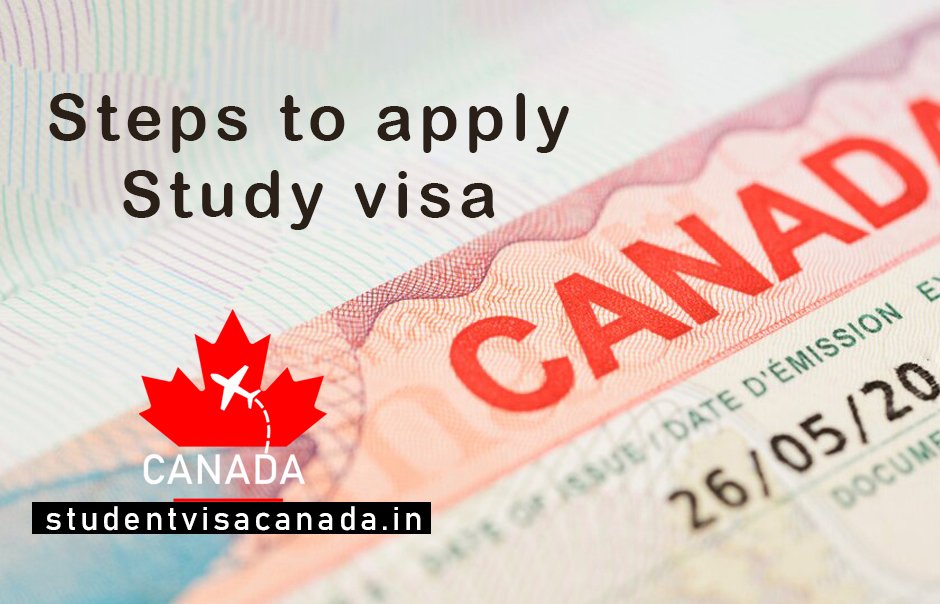A study permit is a document issued by the Canadian government that allows foreign nationals to study at designated learning institutions (DLIs) in Canada. If you are a foreign national planning to study in Canada for more than 6 months, you will need to obtain a study permit before arriving in Canada.

Here are some important details you should know about study permits for Canada:
- Eligibility: To be eligible for a study permit, you must have been accepted by a DLI in Canada and have proof of financial support to cover your tuition fees, living expenses, and return transportation.
- Application process: You can apply for a study permit online or by submitting a paper application to the visa office in your country of residence. You will need to provide personal information, information about your studies, and supporting documents such as proof of acceptance, financial support, and passport.
- Processing time: The processing time for a study permit varies depending on the country and the time of year. You should check the processing times for your country on the Canadian government’s website and apply well in advance of your intended start date.
- Duration: A study permit is typically valid for the duration of your studies plus an additional 90 days. You can apply to extend your study permit if you need more time to complete your studies.
- Work options: If you hold a valid study permit, you may be eligible to work on campus or off campus while you are studying. You may also be eligible for a post-graduation work permit after you complete your studies, which will allow you to work in Canada for up to three years.
- Renewal: If you wish to continue your studies in Canada after your study permit has expired, you will need to renew your permit. You should apply for a renewal at least 30 days before your current permit expires.
- Restrictions: While studying in Canada on a study permit, there are certain restrictions you must abide by. For example, you must maintain your status as a student and not work more than the allowable hours. Failure to comply with these restrictions could result in the cancellation of your study permit and your removal from Canada.
In conclusion, obtaining a study permit is an important step for foreign nationals who wish to study in Canada. It is important to carefully follow the application process and meet all the eligibility requirements to ensure a smooth and successful study experience in Canada
Requirement for Indian students to apply Canada study visa
If you are an Indian student planning to apply for a study visa to Canada, you will need to meet certain requirements. These requirements include:
- Acceptance Letter: You will need an acceptance letter from a Canadian educational institution that has been approved by the government of Canada.
- Financial Support: You will need to show proof of sufficient funds to cover your tuition fees, living expenses, and return transportation.
- English Language Proficiency: You may need to take an English language proficiency test such as IELTS or TOEFL and obtain the required scores as specified by the institution.
- Medical Examination: You may need to undergo a medical examination to ensure that you are in good health and do not pose a risk to public health in Canada.
- Police Clearance Certificate: You may also need to provide a police clearance certificate to prove that you have no criminal record.
- Biometrics: You will need to provide biometrics (fingerprints and photograph) as part of the application process.
- Visa Application Fee: You will need to pay the required visa application fee.
It is important to note that these requirements may vary depending on your individual circumstances and the institution you plan to attend. It is advisable to consult the official Canadian government website for more information and guidance or you also can contact our visa visa consultants expert team.
How to apply for a study visa for Canada
Here are some general steps follow, that will help you:
- Choose a Designated Learning Institution (DLI) in Canada: Before applying for a study permit, you need to choose a DLI in Canada that has been approved by the Canadian government to host international students.
- Check the admission requirements of your chosen DLI: Each DLI has its own admission requirements, which may include English proficiency tests, academic transcripts, and application fees. Make sure you meet all the requirements before submitting your application.
- Apply for a study permit: Once you have received an acceptance letter from your chosen DLI, you can apply for a study permit through the Government of Canada’s official website. You will need to provide personal information, academic transcripts, proof of funds, and other documents as required.
- Attend a biometric appointment: After submitting your application, you will need to attend a biometric appointment to provide your fingerprints and a photo. You will receive a letter confirming the date and location of your appointment.
- Wait for a decision: Processing times for study permits can vary depending on the time of year and the number of applications being processed. You can check the status of your application online using the application number provided to you.
- Travel to Canada: Once you receive your study permit, you can travel to Canada and begin your studies.
Remember that the process can be complex and time-consuming, so it’s important to seek expert guidance and start your application as early as possible to avoid any delays. Good luck!
Get Free Expert Advice
FAQ
What is Designated Learning Institution (DLI) in Canada?
The Designated Learning Institutions (DLI) list is a list of Canadian post-secondary institutions that are approved by the Government of Canada to host international students.
The list is maintained by Immigration, Refugees and Citizenship Canada (IRCC) and is updated regularly. The list can be accessed on the IRCC website at the following link:
International students who wish to study in Canada must be enrolled at a designated learning institution in order to obtain a study permit. It is important for prospective international students to confirm that the institution they plan to attend is on the DLI list before applying for a study permit.
Govt Official sites of Canada: Check the Government of Canada page at http://www.cic.gc.ca/english/study/study.asp to find out what documents are required.Many visa offices have specific local instructions about the documents to present with the applications.
Find out what they are, and make sure you include all the correct documents. Consult the list of Canadian visa offices at http://www.cic.gc.ca/english/information/offices/missions.asp to find the office responsible for your country.
What is Bio Metric appointment?
A bio metric appointment is a scheduled appointment for an individual to provide their bio-metric information, such as fingerprints and a photograph, as part of their application for a visa, work permit, or study permit to Canada. Bio metric information is used to confirm the identity of the applicant and to ensure the integrity of the Canadian immigration system.
The biometric appointment is typically scheduled at a Visa Application Centre (VAC) or a Service Canada location, depending on the type of application and the applicant’s country of residence. The appointment can usually be scheduled online or by phone and should be booked well in advance to ensure availability.
During the appointment, the applicant will have their fingerprints scanned electronically, as well as a digital photograph taken. The process is quick and easy, and the applicant will be required to provide identification and their application documents.
It is important to note that bio-metric appointments are mandatory for certain visa, work permit, and study permit applications, and failure to attend a scheduled bio-metric appointment may result in the application being delayed or refused. It is recommended that applicants carefully review the application requirements and instructions provided by Immigration, Refugees and Citizenship Canada (IRCC) to ensure they are prepared for their bio-metric appointment.
How to Get Biometric Appointments for study visa?
To get a biometric appointment for a study visa in Canada, you will need to follow these steps:
- Apply for a study permit: First, you will need to apply for a study permit online through the Immigration, Refugees and Citizenship Canada (IRCC) website or from our visa consultant team guidance Contact us.
- Receive a biometric instruction letter: Once you have submitted your study permit application, you will receive a biometric instruction letter by email from IRCC. This letter will provide instructions on how to give your biometrics (fingerprints and photograph).
- Pay the biometric fee: You will need to pay a biometric fee of CAD $85 when you apply for your study permit. This fee covers the cost of collecting your biometrics.
A biometric fee is a fee charged by some governments or organizations for the collection and processing of biometric information, such as fingerprints, facial recognition, or iris scans.
Biometric fees are typically associated with applications for visas, work permits, and residency permits, and are meant to cover the cost of collecting and verifying the biometric data. The fee may vary depending on the type of biometric information collected and the country or organization requiring it. - Schedule a biometric appointment: After you receive the biometric instruction letter, you can schedule an appointment to give your biometrics at a Visa Application Centre (VAC) or at a biometrics collection service point (BCSP) in Canada. You can schedule your appointment online through the VAC or BCSP website.
- Attend your biometric appointment: On the day of your appointment, you will need to bring the biometric instruction letter and a valid passport or travel document. At the appointment, you will have your fingerprints and photograph taken.
- Wait for processing: After you give your biometrics, you will need to wait for your study permit application to be processed. Processing times can vary, so it is important to apply well in advance of your planned travel date.
Note that: due to the COVID-19 pandemic, some biometric collection services may be closed or operating with reduced hours. It is important to check the VAC or BCSP website for the latest information on appointment availability and processing times.
What Canada student visa application form?
The Canada student visa application form is called the “Application for a Study Permit Made Outside of Canada” form, also known as the IMM 1294 form. This form is required for international students who wish to study in Canada for a program that is longer than six months.
The form consists of several sections, including personal information, education and employment history, and financial information. Applicants must also provide information about their intended program of study in Canada and their accommodation arrangements.
In addition to completing the application form, applicants must also submit supporting documents such as a letter of acceptance from a Designated Learning Institution (DLI), proof of financial support, and a valid passport. Depending on the country of residence, applicants may also be required to provide biometric data.
Once the application and supporting documents are submitted, the processing time for a Canada student visa can vary depending on the applicant’s country of residence and other factors. It is recommended that applicants submit their application well in advance of their intended start date to allow for sufficient processing time.
Study in canada for international students easy or not?
Studying in Canada as an international student can be a rewarding and valuable experience, but it may also have some challenges.
While the Canadian government has policies in place to welcome international students, the admission process can be competitive and the cost of tuition and living expenses can be high. It is also important for international students to have a good understanding of the Canadian education system, culture, and language proficiency.
However, with careful planning and research, international students can increase their chances of success. There are many resources available to help international students navigate the application process, find scholarships and financial assistance, and adjust to life in Canada.
Overall, while it may not be easy to study in Canada as an international student, it can be a valuable and life-changing experience for those who are willing to put in the effort and prepare accordingly.
Why proof of funds required for Canada student visa?
Proof of funds is a requirement for international students applying for a study permit to Canada. It is a document that shows that you have enough money to cover your living expenses while you study in Canada. The amount of money you need to show depends on your situation, such as where you will study, how long you will stay, and whether you have any dependents.
To prove that you have enough funds, you must provide one or more of the following documents:
- Bank statements for the past four months
- Proof of a Canadian bank account in your name, if you have transferred money to Canada
- A bank draft in convertible currency
- Proof of payment of tuition and accommodation fees
- A letter from a financial institution stating that you have access to the required funds
The Canadian government requires proof of funds to ensure that you can support yourself while studying in Canada and to prevent you from working illegally or becoming a burden on the Canadian social welfare system. Therefore, it is essential to provide accurate and complete information about your financial situation when applying for a Canadian student visa.
Processing Time For Canada Student visa?
The processing time for a Canadian student visa can vary depending on several factors such as the country of residence, the level of study, and the volume of applications being processed at the time of application.
As of April 2023, the current estimated processing time for a Canadian study permit is approximately 15-20 weeks if applying online from outside Canada. However, processing times can be longer or shorter than this depending on the individual circumstances of the applicant and the volume of applications being processed by the visa office.
It’s important to note that applicants should apply for a study permit as early as possible to allow for sufficient processing time and to avoid any potential delays. Additionally, applicants should ensure that they have all the necessary documents and information ready when applying to help speed up the processing time.
Can I Contact Overseas Visa Consultants?
Yes You Can! Overseas visa consultants are professionals who provide guidance and assistance to individuals who are interested in applying for visas to other countries. They typically have expertise in the visa application process, including the required documentation, procedures, and deadlines.
Visa consultants can help applicants navigate the often-complex visa application process, which can vary depending on the country of destination and the type of visa being applied for. They can also provide advice on the necessary preparations, such as medical examinations or language proficiency tests.
In addition to providing visa-related services, some consultants may offer additional services such as job search assistance, accommodation arrangement, or cultural orientation to help applicants settle into their new country more smoothly. It’s important to note that not all visa consultants are reputable, and some may engage in unethical or fraudulent practices, so it’s essential to do thorough research and due diligence before working with any consultant or agency.



